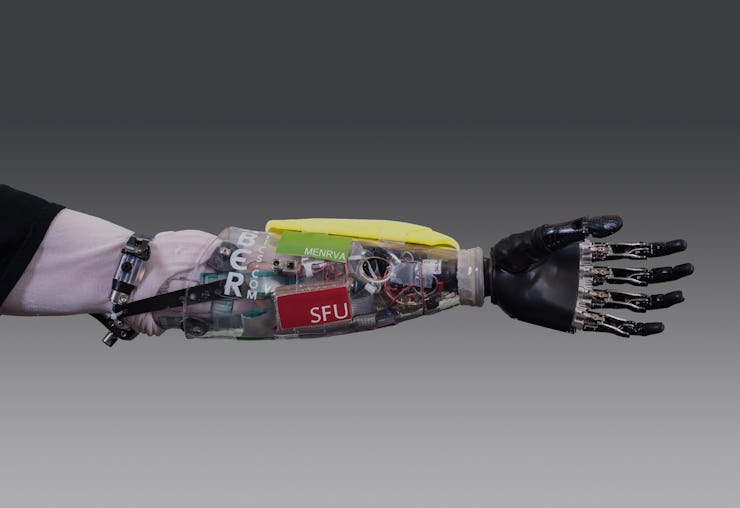Researchers Anticipate Problems as Cyborgs Become a Reality
As technology advances, we need to figure out where it’s going.

Someday soon you may see a cyborg rolling down the street. And that person may be stronger and faster and almost definitely smarter than you.
You may think that’s unfair. How am I supposed to compete? Or you may appreciate the marvel of modern robotics and how they’re changing the human experience. Either way, cyborgs are going to become increasingly common, and we need to figure out what that means.
That’s the argument in the May 31 issue of the journal Science Robotics.
Researchers should prepare for a future where the line between biological and technological is even further blurred than it is today, with bionic prosthetics and advanced brain-computer interfaces becoming even more ubiquitous.
Beatrice Vio, seemingly unbeatable.
Just compare the Paralympics, in which athletes may use prosthetics to compete in a sport — like those used by the seemingly-unbeatable wheelchair fencer Beatrice Vio — with the Cybathlon, a competition wherein participants use more advanced, precise robotic prosthetics or mind-controlled vehicles to perform everyday tasks. They point out that while the Paralympics are all about reaching peak performance, Cybathlon’s competitions are more about helping people become more autonomous or independent in everyday life.
As robotic and bionic technology increases and cyborgs — people who rely on these innovations on a daily basis — become more prevalent, we will need to consider what this all means for humanity from an ethical standpoint, writes Science Robotics editor Guang-Zhong Yang and his colleagues. The prosthetics used by some Paralympians allow them to outperform able-bodied athletes, and increasingly precise and powerful machines can accomplish things way beyond the realm of error-prone humans.
With the showcase of new research into assistive robotics, which includes new prosthetic techniques and the use of powered exoskeletons in rehabilitative medicine, the column states that above all else, care must be taken that the people who rely on this technology must be able to do so in a world that’s free of stigma or judgment against cyborgs.